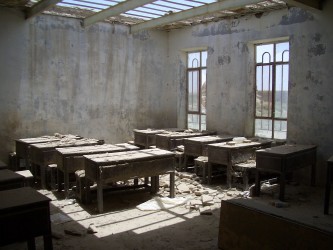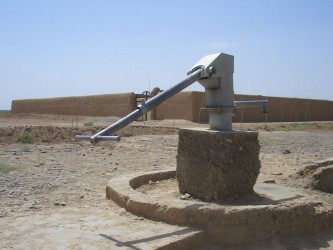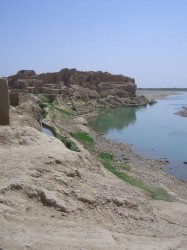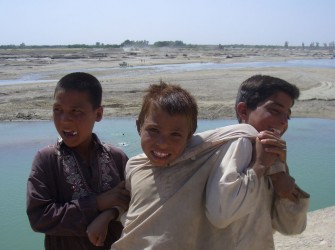We are living in an insecure place and that’s why we have to cultivate poppy. We are not happy that our small children become addicted to opium. I am worried about my two sons because they are youths and they should study and go to school. But unfortunately cultivating poppy is just a custom in our village and all the people do it.
These are the words of a Helmandi woman named Gul Bashra in an interview a couple of weeks ago, carried out as part of the Governor of Helmand's counter-narcotics plan which DFID supports. Opium production accounts for a substantial part of the economy here.

Helmand is the largest province in Afghanistan, in the south of the country on the border with Pakistan. The population of somewhere between 800,000 and 1.5 million is largely rural and many people rely on subsistence agriculture. Insecurity, worsened by a sustained insurgency against the government of Afghanistan since the removal of the Taleban in 2001, has restricted opportunities for the people of Helmand, hence the prevalence of opium.
DFID is the part of the UK government that manages Britain's aid to poor countries and works to reduce poverty. Afghanistan is one of the poorest countries in the world, ravaged by decades of conflict. That's why, alongside our military efforts, the UK has committed over £800 million in Afghanistan from 2008 to 2013 in support of the Afghan government's own strategy for development.

DFID works both at the national level to help the Government of Afghanistan rebuild the state, and in Helmand to support wider UK work to stabilise the province and to lay the foundations for longer-term development.
I work as part of the Civil-Military Mission to Helmand, known as a Provincial Reconstruction Team (PRT). The team is made up of a variety of UK government departments as well as the UK military and the Danish, Estonian and US governments.
My job involves being the DFID representative for all DFID's programmes in Helmand. That means I work on a number of areas – such as supporting local government to deliver basic services like clean water, sanitation and waste disposal; and rural development projects chosen by local communities including building wells, repairing canals, and constructing roads for improved security and getting goods to market.

So are we making a difference? Yes - but slowly. Development takes time, especially in a place where the security situation means we can't assist the Afghan government to reach out everywhere and to everyone. But there are signs of progress, from more schools open, to better access to health care, to success stories from individuals who have been supported in their businesses with small loans.

It is important here to aspire to help effect change, but to keep those aspirations realistic as it is such a difficult environment. I hope we can help the Government of Afghanistan to improve the lives of Helmandis and gradually to move up in their estimation. If the people see a reason to support the government rather than the insurgents, because the government can provide security and deliver basic services, then we are doing our job.
You can read more about DFID’s work in Afghanistan on the DFID website.

Recent Comments